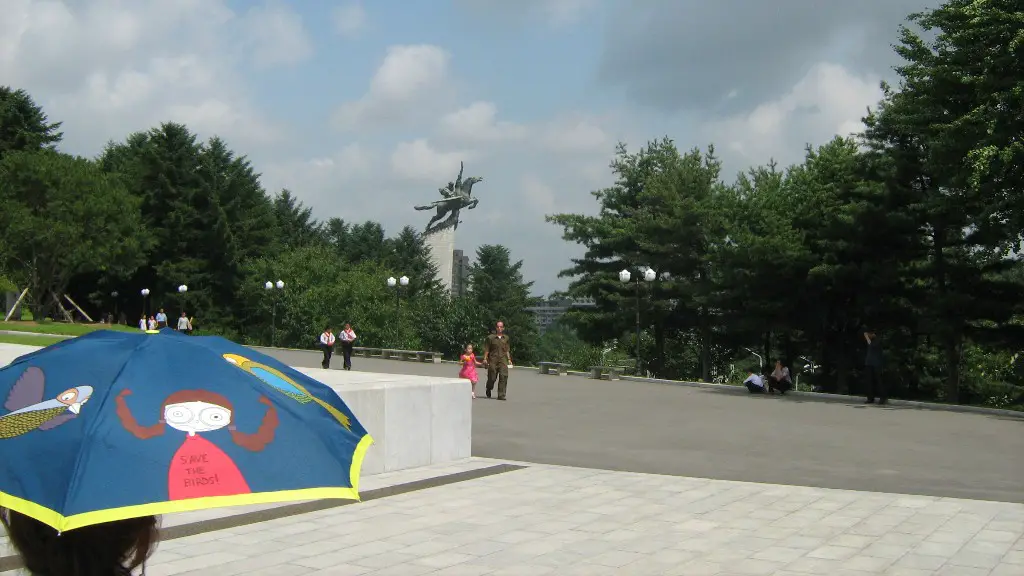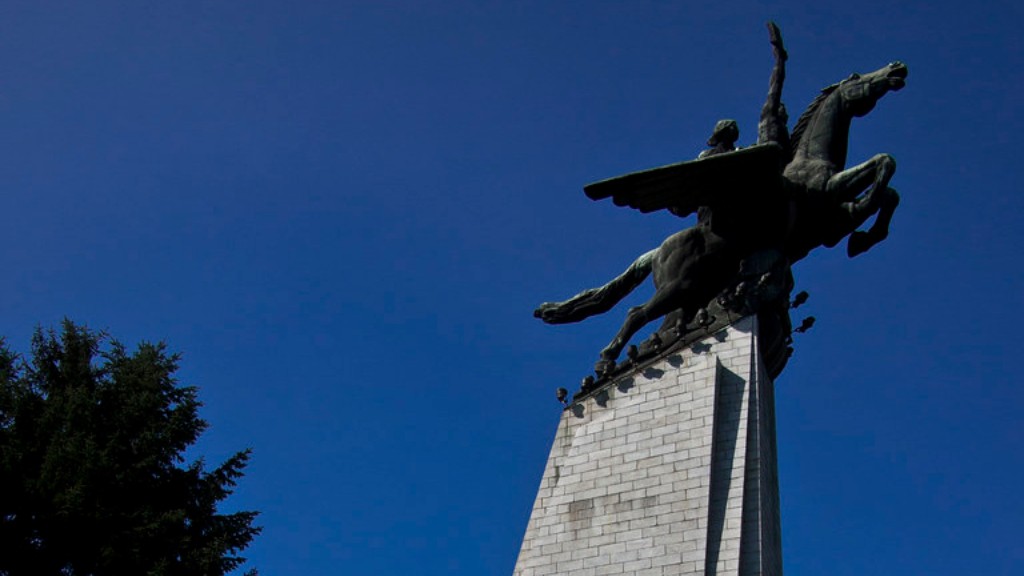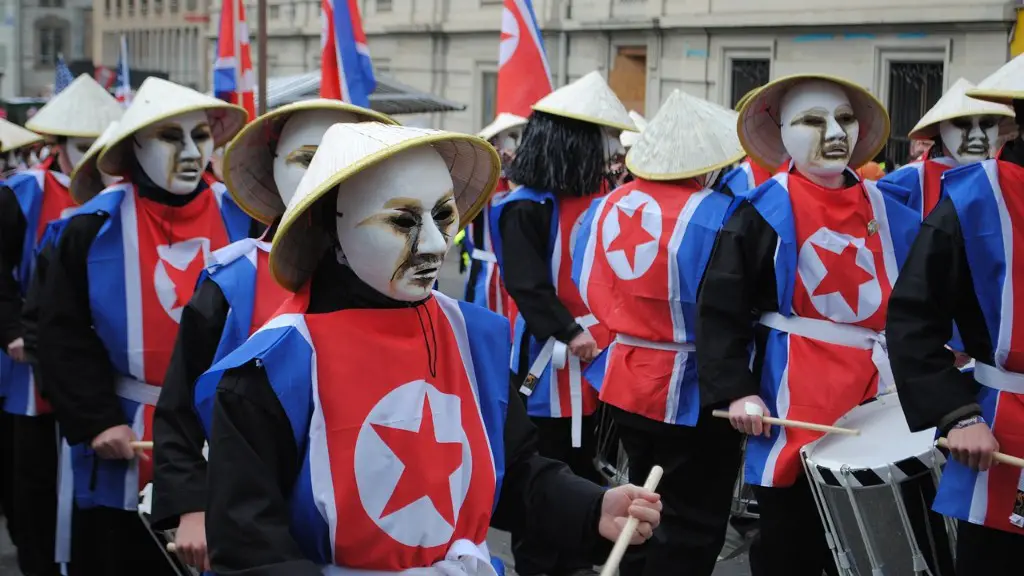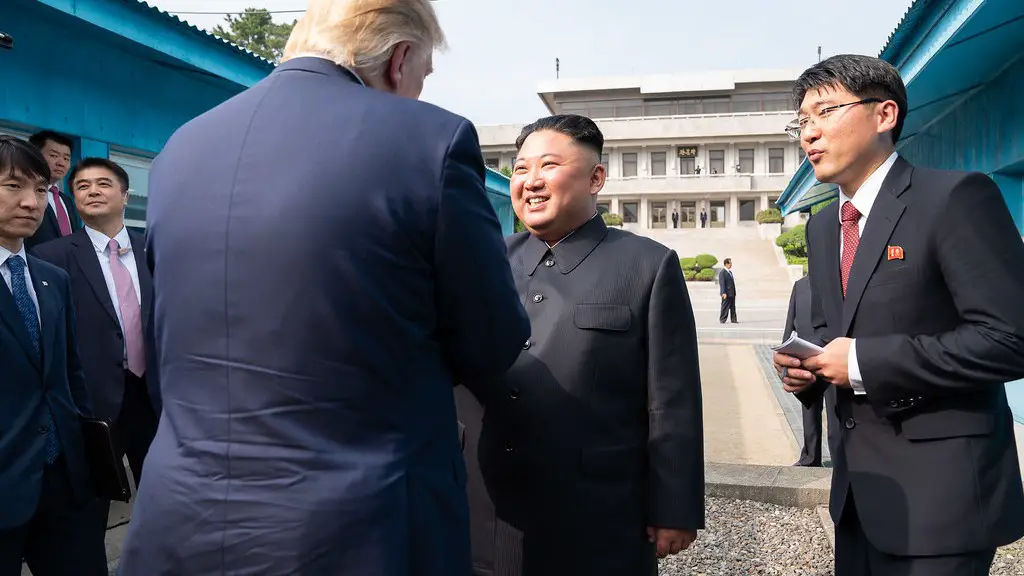Political Situation
South and North Korea have been politically divided since the end of World War II. The Korean War (1950-1953) resulted in the splitting of the peninsula and a formal armistice that has been rarely violated since. Since their split, the two Koreas have become polar opposites, with South Korea taking a more westernized course in representation and economic development, while North Korea remains a tightly controlled and isolated nation. With two hostile neighbors, people all around the world continue to wonder if the two countries will ever be united or will remain divided forever.
Economic Landscape
South Korea is one of the most advanced and prosperous economies in Asia. It is a member of the OECD and has achieved remarkable economic development since the Korean War. It has a highly educated workforce and is a leader in technology and innovation. On the other hand, North Korea is an economically isolated and impoverished country, which is heavily dependent on foreign aid. Its government has heavily controlled its economy, resulting in slow economic growth and rising inequality.
The reunification of the two Koreas is a complex and sensitive issue with serious political implications. South Korea is a democracy and is supported by powerful allies like the US, while North Korea is a totalitarian dictatorship led by a dynastic leader. The two countries have different ideologies and conflicting political systems, making it difficult for the leaders to figure out how to unite the peninsula without causing major instability.
Geopolitical Factors
Geopolitical tensions could also prevent the reunification of the two Koreas. North Korea is surrounded by US-backed allies like Japan and South Korea, and its government often resorts to aggressive rhetoric against them. Many fear that if North Korea were to open up, it would lose its grip on power. There is also a fear that the two countries could reunite and create a unified superpower in the region.
Social Conflicts
The problem of reunification is further complicated by social conflicts within the peninsula. South Koreans are more affluent and open-minded than their northern neighbors, and many would be hesitant to accept a reunification with North Korea. There is also the issue of language: the official language in both countries is Korean, but there are still stark differences in how the language is spoken and written in the two countries.
Lack of Negotiation
Despite the hostility between the two countries, there have been some attempts at negotiations. For example, in 2018, North and South Korea agreed to hold a historic summit in an effort to promote reconciliation and dialogue. However, these negotiations did not lead to any tangible progress and the two countries remain deadlocked on the issue of reunification.
International Support
The international community could also play an important role in the reunification of the Korean peninsula. The UN has supported initiatives to peacefully reunify the two Koreas, calling for a gradual and peaceful approach to resolving the issue. China, the biggest economic partner of the two countries, has also supported diplomatic efforts to bring them closer.
Delicate Political Maneuvering
The future of the two Koreas is uncertain, but reunification is possible if the right conditions are met. To reunite the peninsula, officials would need to carry out delicate political maneuvering. Both countries would need to put aside their differences and take gradual steps towards cooperation and mutual understanding. International support and diplomatic dialogue could also play an important role in fostering relations and unifying the two countries.
Future Hopes
International experts are hopeful that the two Koreas can eventually be reconciled and unified. For example, the US government has said that it is willing to support a peaceful reunification of the peninsula and has indicated that it could provide economic incentives for North Korea if it makes commitments to reform. In spite of the many challenges, there is still hope for the two Koreas to be reunified someday.
Questions of Leadership
The reunification of the two Koreas depends, to a large extent, on the actions and leadership of the political leaders of the two countries. South Korea’s President Moon Jae-in has taken steps to engage with North Korea and has been a strong advocate for reunification. On the other hand, North Korea’s leader Kim Jong Un has yet to show any indication that he is open to talks of reunification.
Potential Roadblocks
The reunification of the two Koreas could be further hindered by other potential roadblocks. For example, North Korea’s nuclear program has been a major source of tension between the two countries and could serve as an impediment to any potential negotiations. North Korea’s isolationist foreign policy could also prove to be a major hurdle for any efforts to reunify the peninsula.
Alternate Solutions
The reunification of the two Koreas is not the only potential solution to the divided peninsula. Some experts have suggested that a loose political or economic federation between the two countries could be established to promote peace and stability. This type of arrangement would be easier to achieve, as it would require fewer negotiations and fewer compromises between the two countries.
Role of Citizens
The citizens of both countries can play an important role in the reunification process. South Korean citizens could help to foster mutual understanding and goodwill between the two countries, while North Korean citizens could be more vocal in calling for an end to the divisions on the peninsula. Ultimately, it is up to the citizens of both countries to decide whether reunification is something they want to pursue.



